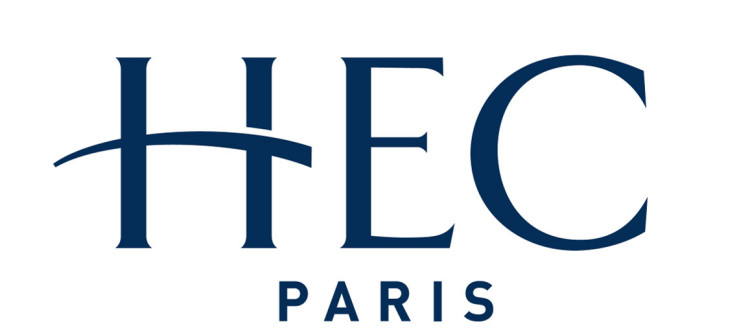- Innovation
Mastering Innovation and Entrepreneurship
Inside the online master’s degree for budding entrepreneurs at HEC Paris
The urge to innovate, allied to the capacity to develop entrepreneurial enterprise and the willingness to take on risk, lies at the heart of all economic growth. As testified by the experience of China where 600 million people have been lifted out of poverty in the last three decades, achieved through economic reform and allowing entrepreneurs the freedom to thrive.
Innovation and entrepreneurship are key not only to business growth but also to social advancement. So, developing entrepreneurial individuals with the capacity to lead and innovate either their own start-up enterprises or within existing organizations is a top priority for business schools and a mission firmly embraced by HEC Paris.
In conversation with IEDP, Thomas Astebro, L'Oreal Professor of Entrepreneurship, explained how HEC Paris is now teaching a diverse and growing audience of budding entrepreneurs through its new Online Masters in Innovation and Entrepreneurship (OMIE) – for which he is the Academic Director.
Initially HEC expected the participants to be mid-career executives, all wanting either to transition into leadership in their organizations or to leave and set up on their own. In fact, although the average age turned out to be 38, there were several twenty-year olds, eager to build their own businesses, and some sixty-plus veterans who joined the program to provide a framework for their own experience with a view to passing on knowledge and skills to younger people.

The online delivery meant that, as expected, applicants have come from around the world, the highest numbers from USA and Europe, but then from Russia, India, China, Latin America and Africa. So far, no apparent cultural differences have emerged in why people apply. So, what are these people looking for?
“To upgrade their skills, that's number one,” says Astebro. “What do I need to know to start a company or to become an R&D manager or CEO of a small high-tech business? And they look for a framework asking how do I understand the world?” They seek to understand for example why and how small start-ups fail and what kind of strategies can be used to avoid competing directly with larger companies. They also need to understand general business management and cost control.When people think of entrepreneurs they tend to picture Steve Jobs, Richard Branson and the like. Astebro warns against this. “These guys, and women, Coco Chanel as well, they're born with it. But that doesn't mean that entrepreneurship cannot be taught.” Unlike a finance course, there is no useful algorithm that can be used. “But there is wisdom in the madness,” he says. “Entrepreneurship is just an extremely diverse set of skills that you need to take on, and there are also certain things about how to behave as a person that you can learn to appreciate through training; things like being persistent, being a good negotiator.”
“A lot of students ask us, ‘Will you accelerate my project’ and we have to say ‘No, that's not what we do’,” says Astebro. This is a degree program which teaches people how to be an entrepreneur through work on projects, their own or others’, whereas ‘accelerators’ assume people have entrepreneurial skills and exist to kick-start business ideas in a fairly brutal way: either seed funding a business model or quickly rejecting it if it shows no instant signs of succeeding.
The Master’s program focuses both on start-up enterprises and innovation-based business development in larger firms. Astebro sees no dichotomy between teaching innovation or teaching entrepreneurship. “They're on different parts of the spectrum, but they fit together well.” Teaching about the strategic management of innovation requires a little more focus on larger companies and teaching entrepreneurship more on business start-up. But as he points out, “Even in large companies, people that do an innovation project need to be entrepreneurial. They still need to do business development, they still need to make sure that the business model works.” The big difference being access to resources. “A start-up entrepreneur needs to be a jack of all trades.”
Although the program cannot provide a set template for success or describe how to replicate Steve Jobs, it can teach people good practice and how to avoid mistakes. Key to this at HEC Paris is the combined input from academic faculty and practitioner entrepreneurs. Important contributions come from business people such as Affiliate Professor Patrick Legland, an international deal-maker, who provides a course on the private equity venture capital industry, and from subject experts such as Associate Professor Mathis Schulte, a consultant negotiator, who solely teaches negotiation skills on the program. (See below for full list of contributors).
The major benefits of the online aspect, is the flexibility it gives in terms of where and when study takes place. As Astebro says, “You don't have to go to campus. You don't have to be in one place and you can do your homework in the night if you so want to.” This is particularly the case in the first phase of the program, which leads to a self-standing certificate, and consists of 12 courses that are done in the ‘anytime, anywhere’ format, completely independently.
Then, in the second phase, leading to the degree, there are a further 8 courses. Here, it was important to HEC that the program was not pre-packaged or canned and that there should be real interaction with faculty and peers. In this second phase the cohort of 60 participants is divided into teams of four in order to work together on a project that one of the four has successfully pitched to the whole group. There is less time flexibility in this phase, as it is scheduled around team working and online real-time meetings.
Each team will also have a business coach. This is not a professor, but a person that has been an entrepreneur or, for a project that's going to be run within a company, a person with significant experience running projects in large companies. Meeting this person once a week, for five months, the team is set delivery goals to move the project forward step-by-step from a raw idea to a full commercial plan. “I think we will be testing the limits of online interaction with this coaching process,” says Astebro, but he is confident about the customized web conferencing platform used. Finally, each business plan is pitched in front of a jury consisting of venture capitalists and private equity people, professors, and business people who judge the presentation and the plan.
Following success with the first cohort, HEC Paris plans to scale-up the program. This will be a boon to budding entrepreneurs worldwide and to society – particularly as the program includes a specific course on social entrepreneurship taught by Affiliate Professor Florian Hoos, Director of the Master in Sustainability and Social Innovation. “Social entrepreneurship is just entrepreneurship as an application to a specific area,” says Astebro.
Click here to see the full OMIE program schedule and faculty bios.
ARTICLES YOU MIGHT LIKE
VIEWPOINT
Cognitive neuroscientist, Lynda Shaw, explains how to understand and support intrapreneurs
DEVELOPING LEADERS QUARTERLY MAGAZINE AND WEEKLY BRIEFING EMAILS


































